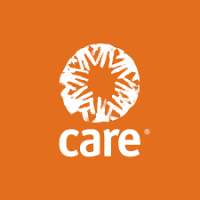
CARE seeks a Chief of Party (COP) for the anticipated USAID-funded Round 04 -Nepal Early Recovery, Risk Reduction, and Resilience (ER4) Activity. This Activity aims to reduce disaster risk and increase the disaster management capacity of the Government of Nepal (GoN) as well as highly vulnerable disaster-prone communities in Nepal to mitigate, withstand, respond to, and recover from disasters.
The COP will be responsible for leadership, management, and technical direction of staff and consultants, project activities such as implementation, monitoring, reporting and evaluation, and partner coordination. They will serve as key liaisons with USAID, government counterparts, and local partners. The COP will manage and supervise the work of program personnel and subcontractors/subgrantees and ensure that all program assistance is technically sound and appropriate. The COP also oversees program work planning, performance management, and strategic communication.
This activity is expected to be a three-year program with an initial budget of $9 million, with a potential two-year extension in a second phase, bringing the total budget to $12 million.
This is a Key Personnel position, subject to USAID approval. It is also subject to project award and funding. This position will be based in Kathmandu, Nepal.
Responsibilities:
- Lead the project, providing vision, direction, and technical guidance.
- Oversee the overall management and implementation of the project, ensuring project results and deliverables align with the project work plan.
- Supervise and mentor senior technical staff and consultants, motivating teams to deliver results through a strong team dynamic, open communication, and by leading by example. Promote diversity, equity, inclusion, and belonging across internal operations, management, and program implementation.
- Build and maintain productive working relationships with USAID, the Ministry of Home and NDRRMA, the Department of Hydrology and Meteorology, project partners, and key stakeholders. Serve as the primary liaison among all project stakeholders.
- Conduct safeguarding risk assessments for the program and partners, incorporating safeguarding activities into the project plan to mitigate identified risks. Establish feedback and accountability mechanisms for both the program and partners to address safeguarding issues promptly, with support from Country Office safeguarding focal points.
- Manage the project’s operational, financial, and administrative priorities, directing planning and budgeting processes. Adapt management systems in line with CARE’s standard operating procedures to ensure adherence to USAID policies, relevant national laws, and CARE’s safeguarding policies. Uphold CARE’s Code of Conduct and promote safeguarding practices across all levels of program implementation.
- Build partnerships with international, national, and community-level stakeholders to strengthen project impact.
- Design and oversee an annual project cycle that aligns with USAID’s planning cycles. Document and disseminate findings, impact, innovations, and lessons learned, applying a collaborative and adaptive learning approach.
- Lead the documentation and coordination of information dissemination activities to highlight project achievements and influence decision-makers and policymakers.
- Conduct regular team meetings where safeguarding is a recurring agenda item, fostering open discussion on safeguarding issues and monitoring implementation of safeguarding within the team.
- Provide leadership and oversight to the Monitoring & Evaluation (M&E) function, ensuring quality assurance for required reports and deliverables.
- Remain current with related in-country and international programs and best practices, ensuring CARE staff integrate these effectively into their work
Qualifications:
- Master’s degree in development studies, international relations, environmental studies, or a related field.
- 7+ years of progressively increasing management responsibility in international humanitarian and development projects, at least five years of which must be field-based.
- Demonstrated proficiency in Forecast-based Action, Disaster Risk Financing, Early Warning (EW) systems, and Disaster Risk Reduction (DRR) policy and planning.
- Proven leadership skills managing projects of a similar size and scope in developing countries.
- Prior experience effectively managing humanitarian and DRR activities involving implementation by multiple sub-awardees.
- Demonstrated experience recruiting, developing, and managing staff, and managing programmatic and financial reporting.
- Prior experience working in South Asia, familiarity with Nepal’s DRR governance, social, political, economic, and cultural landscape, and demonstrated ability to build and maintain relationships with host governments, donors, other donor-funded projects and stakeholders, local organizations, and partners.
- An understanding and demonstrated commitment to the importance of diversity, equity, inclusion, and accessibility.
- Demonstrated experience in adaptive management and learning techniques is highly
- encouraged. Proven success serving in a leadership role for a project addressing issues related to resilience, emergency response, natural resource management, disaster risk reduction through nexus approach, preferably in South Asia.
- Fluency in English required (spoken and written).
- Strong oral and written communication skills; excellent demonstrated inter-cultural, interpersonal, and negotiation skills.
- Strong financial management, budgeting, and project operations/administrative oversight abilities.
- Demonstrated skills building, and maintaining relationships with host governments, donors, other donor-funded projects and stakeholders, local organizations, and partners.
- Demonstrated commitment to PSHEA (Prevention of Sexual Exploitation, Harassment, and Abuse).
- Ability to travel within Nepal as required.

